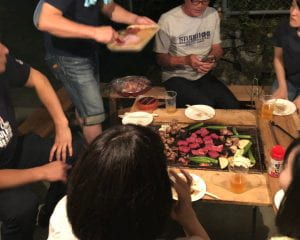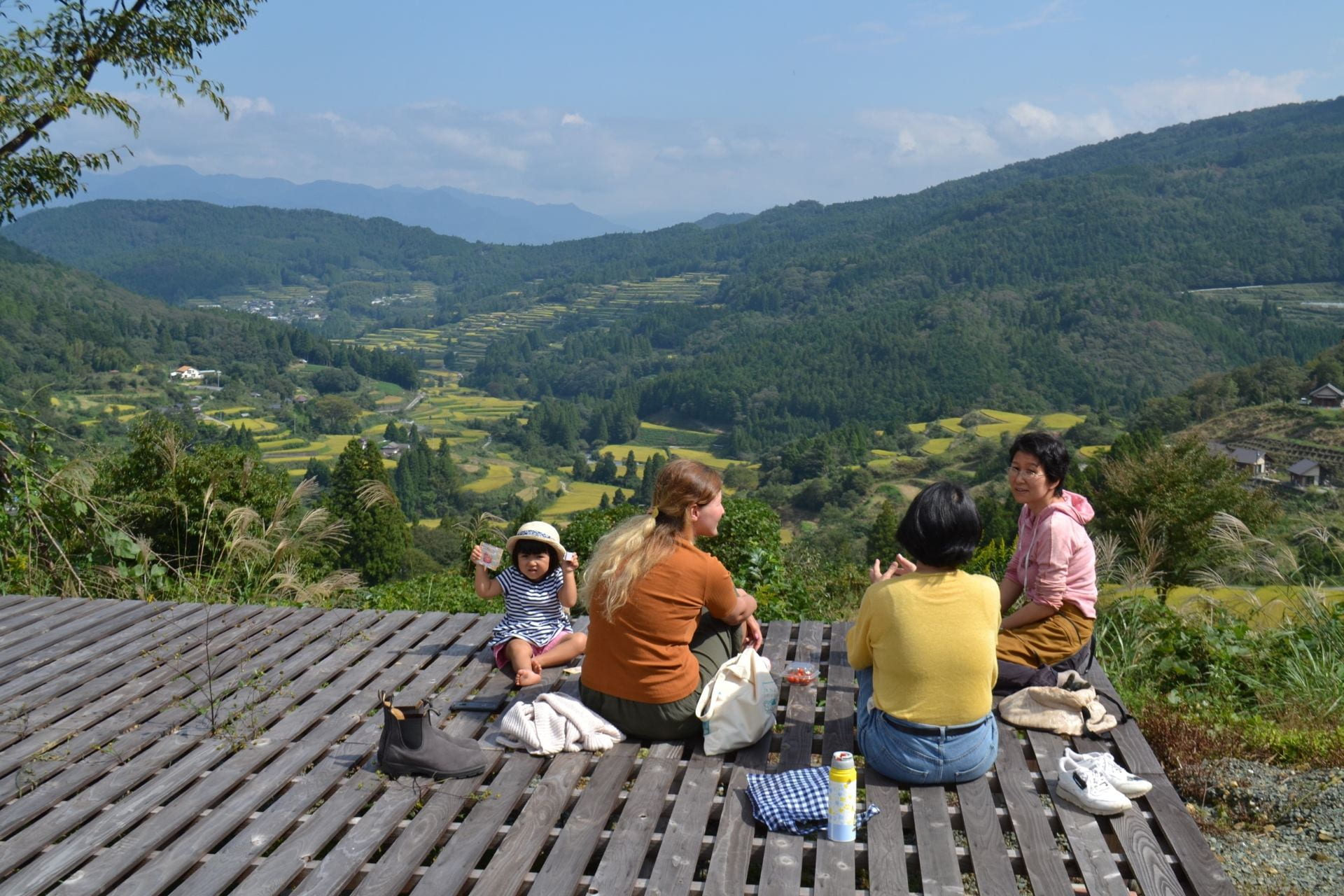Facilitating nutritional health through the smartphone in rural Japan
By Laura Haapio-Kirk, on 7 November 2019

Communal eating in Tosa-cho. Photo by Laura Haapio-Kirk (CC BY).
In September I received the good news that a joint application I made for the newly established Osaka-UCL Partnership Funding was successful. Along with Danny Miller on the UCL side, I teamed up with Dr Yumi Kimura from Osaka University who works on nutrition from a public health perspective in Japan, Myanmar, and the Himalayas. The project also involves Lise Sasaki, who previously studied medical anthropology at UCL. Our proposed collaborative project joins my ongoing anthropological research on smartphone usage among older adults in Japan with Dr Kimura’s public research on nutrition, to develop a mobile health intervention which is sensitive to local usage of mobile phones and attitudes towards health.
The project will take place in my rural fieldsite of Tosa-Cho, a town of roughly 4,000 inhabitants, in Kōchi Prefecture, South West Japan. This rural mountainous area is remote, with the nearest city (Kōchi City) being a 1-hour drive away. Rural towns in Japan are most in need of technological innovation to deal with the growing number of elderly people who are living often alone and in need of care. We know from our ethnographic research that mobile health applications are seldom used by older adults in this town, despite smartphone usage being fairly high. This indicates that there is great potential for digital health interventions but these have to adapt to the way local people are already using their smartphones, rather than encouraging them to download new apps.
Over the course of our fieldwork, we have seen this trend across several field sites ranging from Brazil to Ireland: although mHealth initiatives may focus on changing behaviours through the use of native apps built specifically for improving health outcomes, we think making use of the ubiquitous platforms already in common use amongst the target populations could offer significant benefits. We plan to examine the creative ways that older adults are already using common smartphone applications for health and wellbeing, and will explore how these everyday applications could be used for purposes of a nutritional intervention, for example meal tracking using the application Line, or the facilitation of social eating in order to reduce isolation among older adults.
We will present our findings to doctors and health researchers at a symposium in 2020 organised by the UNESCO Chair in Global Health and Education, held at Osaka University by Prof Beverley Yamamoto. We also want to share our findings with the local population of Tosa-cho, so we plan to run a community workshop where we will demonstrate ways for people to use their smartphone to benefit their health and wellbeing. We are hoping that this research and accompanying policy report will reach beyond Kōchi prefecture and will be shared more broadly to advise on digital health policy across Japan. As older adults adopt the smartphone at increasing rates, the potential for mHealth to mitigate some of the health challenges that come with ageing is promising, but initiatives must adapt to already existing behaviours if they are going to have a chance to be sustained.
 Close
Close






